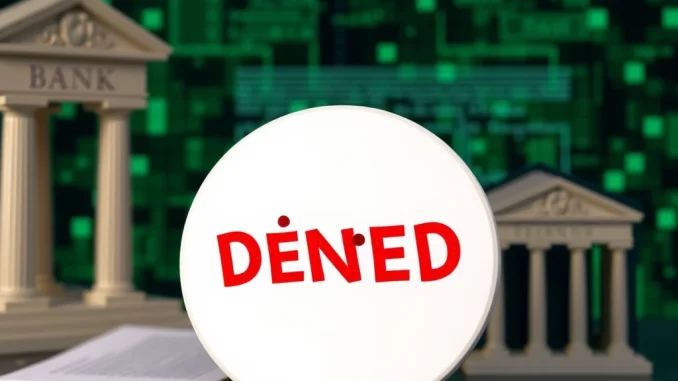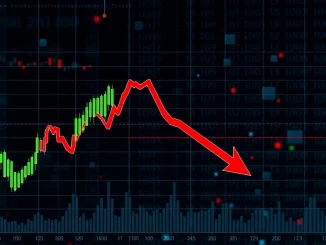
The latest crypto news brings an important clarification from a major player in the stablecoin space. Reports had circulated suggesting that Circle, the issuer behind the widely used USDC stablecoin, was actively pursuing a U.S. federal bank charter. This move, if true, would signal a significant step towards deeper integration with the traditional financial system. However, Circle has now set the record straight.
Circle Bank Charter: Setting the Record Straight
Contrary to recent speculation, an executive at Circle has directly refuted claims that the company is seeking a U.S. federal bank charter or looking to acquire an insured depository institution. The initial reports, including one from the Wall Street Journal, indicated that several crypto firms, including Circle and BitGo, were exploring U.S. banking licenses as a pathway to forge stronger connections with traditional finance.
Dante Disparte, Circle’s Chief Strategy Officer, provided clarity on the company’s actual intentions regarding regulatory licensing. He stated that while Circle is indeed focused on navigating the regulatory landscape, its sights are not set on a full federal bank charter at this time.
Why Stablecoin Regulation is Key to Circle’s Strategy
Circle’s focus on licensing is closely tied to the evolving environment around stablecoin regulation. As regulatory frameworks for digital assets, particularly stablecoins, begin to take shape globally and within the U.S., companies like Circle need appropriate licenses to operate effectively and compliantly.
Disparte clarified that Circle may pursue a federal or state trust charter or another type of non-bank license. These types of licenses are often better suited for companies dealing primarily with digital assets and custody, rather than traditional lending and deposit-taking activities that a full bank charter entails. Securing the right license is crucial for Circle to meet forthcoming regulatory requirements and ensure the continued trust and stability of its operations, especially concerning its flagship product, Circle USDC.
Decoding Circle’s Crypto Licensing Ambitions
So, what’s the difference between a federal bank charter and the licenses Circle is considering? Here’s a quick breakdown:
- Federal Bank Charter: Typically allows for a wide range of banking activities, including deposit-taking, lending, and access to the Federal Reserve system. It comes with extensive regulatory oversight and capital requirements designed for traditional banks.
- Federal/State Trust Charter: Focuses more on custodial services, asset management, and fiduciary activities. It’s often a better fit for companies holding or managing assets on behalf of others, which aligns well with stablecoin issuance and reserve management.
Non-Bank Licenses: These can vary widely by state and type, covering activities like money transmission, lending, or specific digital asset business operations. They provide regulatory clarity for specific business models that don’t fit the traditional banking mold.
Circle’s indication that it is exploring trust or non-bank licenses suggests a strategic alignment with its core business as a stablecoin issuer and payments technology company, rather than transforming into a traditional bank. This approach aims to comply with anticipated stablecoin regulation without necessarily taking on the full scope and requirements of a bank charter.
What This Means for Circle USDC and the Market
Circle’s regulatory positioning is of paramount importance for Circle USDC, one of the largest stablecoins by market capitalization. Clarity on Circle’s licensing status provides confidence to users, partners, and regulators regarding the legitimacy and stability of USDC.
The decision to pursue licenses appropriate for a digital asset business, rather than a bank charter, also reflects the ongoing debate about how crypto companies should integrate with traditional finance. While some integration is desired, maintaining a distinct regulatory path for certain crypto activities like stablecoin issuance seems to be Circle’s preferred strategy for now. Staying informed on this type of crypto news is vital for anyone involved in the digital asset space.
Stay Ahead with the Latest Crypto News
Circle’s denial of seeking a federal bank charter clarifies its immediate regulatory path. The company is focused on obtaining licenses, such as trust or non-bank charters, that are suitable for its role as a stablecoin issuer and align with upcoming stablecoin regulation. This strategic choice highlights the distinct regulatory needs of crypto businesses compared to traditional banks.
Keeping up with these developments is crucial. As the regulatory landscape for digital assets continues to evolve, the decisions made by major players like Circle will significantly impact the future of stablecoins, crypto licensing, and the broader integration of crypto into the global financial system. Stay tuned for more essential crypto news and updates.
***



